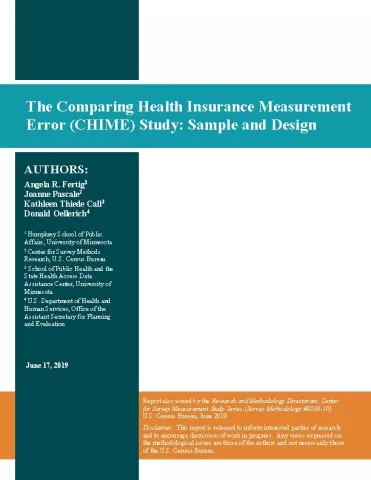The aim of this report is to describe the CHIME study design and sampling strategy and to report matching and response rates.
About the CHIME Study
Because there is no comprehensive administrative record of health insurance coverage in the United States, we must rely on household survey reports to estimate the uninsurance rate and, in many cases, coverage type. Studies of the accuracy of reporting are needed to examine the validity of these survey estimates. The CHIME (Comparing Health Insurance Measurement Error) study is an experimental reverse-record check study that compared survey responses to administrative insurance records to understand the magnitude, direction, and patterns of misreporting in two important national surveys conducted by the U.S. Census Bureau. The study surveyed a stratified random sample of households known to have health insurance through one large regional insurer in the Midwest. Half of the sample was asked the health insurance module from the recently redesigned Current Population Survey Annual Social and Economic Supplement (CPS), and the other half received the health insurance module from the American Community Survey (ACS). CHIME provides the first post-health reform assessment of the validity of two national survey instruments in capturing health insurance coverage and its sources. CHIME also serves as the first baseline for validation across a range of public and private coverage types in the CPS redesign as well as the first validation study for the ACS.

